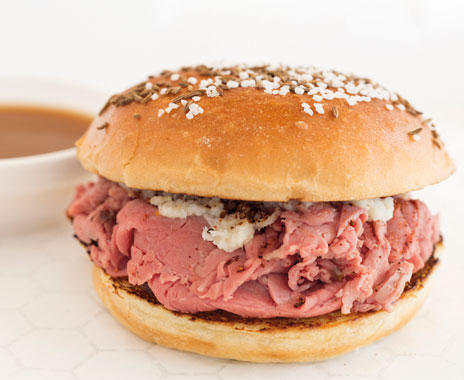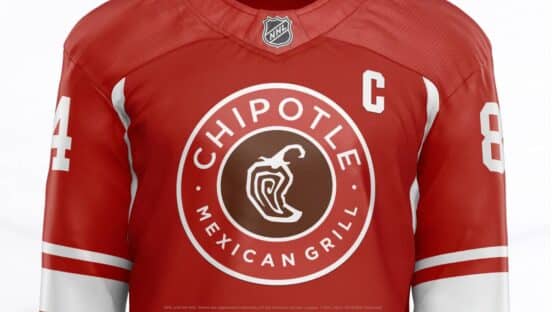It seems everybody these days wants to open a fast-casual concept, from fine-dining chefs and casual-dining veterans to former NFL quarterbacks investing in retirement endeavors.
And it’s for good reason: According to a recent report from Euromonitor International, fast-casual sales grew 10.4 percent globally in 2015, best of any foodservice category (total industry sales grew 5.7 percent). Further, The NPD Group found that while overall foodservice traffic grew 1 percent in the year ending February 2016, fast-casual traffic grew 6 percent.
But those proclaiming the death of traditional quick service might want to step off their soapboxes. Not only does fast casual represent just 7 percent of quick-service traffic, according to NPD, but some food entrepreneurs are finding that traditional hallmarks of fast food—namely drive thrus, fast speed of service, franchised growth, and indulgent menu offerings—still represent plenty of growth potential, so long as they’re done at a high-quality level.
Take Los Angeles–based Top Round Roast Beef as an example. The concept, which first opened in 2013, was developed by chefs Anthony Carron, Noah Ellis, Steven Fretz, and Jamie Tiampo as a riff on the nostalgic roast beef sandwich joints of the past. And in order to do that, the partners had to fit it more into the quick-service experience than fast casual.
“We want to be a fast-food concept; we don’t want to be fast casual,” says Carron, who is also a partner with the 800 Degrees fast-casual pizza concept. “We’re looking right now for a drive thru that we can flip into a Top Round because our speed of service is fast enough to handle drive-thru timelines. … There’s not much out there. Everyone wants to be fast casual, and we intentionally don’t.”
The premise behind opening Top Round, Carron says, was that better burgers, better Mexican, and better pizza had all largely been saturated, but nobody had yet elevated the roast beef sandwich offering; quick-service giant Arby’s largely owned the market to itself.
To accomplish that elevated offering, Top Round committed to using high-quality ingredients on its menu—including whole top-round beef cuts roasted in-house and sliced to order—and making many of the ingredients itself. The menu includes standard sandwiches like the Original with seasoning and au jus and the Beef & Cheese with a homemade cheese “wizz,” while there are also more upscale offerings like the Beef on Weck with horseradish and caraway; the Horse & Hole with Provel cheese, horseradish cream, and roasted mushrooms; and the Beef “Cali” with lettuce, tomato, avocado, and ranch.
The menu also features chicken sandwiches, hot dogs, vegetarian items, and sides like fries and tots. For dessert, there’s an extensive frozen custard selection, modeled after the famous Ted Drewes Frozen Custard concept in Carron’s hometown of St. Louis (the same custard joint that inspired Shake Shack owner Danny Meyer to add the dessert at his chain). On Top Round’s website, a large sign proclaims the brand to be “Chef Driven Fast Food,” while beneath that it claims, “The only thing in our kitchen that’s frozen is our custard.”
“It’s the fundamentals; you’re upgrading the quality of the ingredients, but the composition is the same,” Carron says of why the founders specifically consider Top Round a fast-food restaurant. “It’s like a different artist playing the same song. That’s kind of the approach.”
Other upstart operators are similarly bringing innovation and inspiration to a more quick-service model. For example, Locol, the Los Angeles–based concept from chefs Roy Choi and Daniel Patterson, aims to bring wholesome fast food to impoverished neighborhoods, with prices ranging from $2 to $6 for its menu items. Choi has said he wants to open a Locol next to McDonald’s and Wendy’s all across the U.S.
Drive thru, in particular, is making a resurgence, years after many fast casuals opted not to include the outdoor lane for fear it would undercut the quality offering. A look around the country shows several new brands featuring a drive thru: Bryn & Dane’s, a healthy fast-food concept, dishes farm-to-table fare in the drive thru at its three Philadelphia-area locations; Amy’s Drive Thru in Rohnert Park, California, serves organic burgers, burritos, and pizzas; and Start brings “real food fast” to drive-thru customers in its two Dallas locations.
Meanwhile, in Miami, former NBA superstar Ray Allen and his wife, Shannon, recently opened the quick-service concept Grown, which serves healthier menu options in a sleek dining room and out a drive-thru window.
Shannon Allen told QSR in February that it was critical to offer a drive thru so that busy parents carting their kids around could still easily access affordable, healthy meals. “The drive thru didn’t need to go away, just what’s offered in a drive thru,” she says. “It’s absolutely fast food, and that’s our goal: To make people’s lives easier, to make it convenient, to make it accessible, to make it affordable, and to make it great. If we can do that, then hopefully people will love it.”
To be sure, many of the concepts participating in the new quick-service wave still feature fast-casual prices; high-quality ingredients, of course, come at a premium. Carron says that Top Round customers who order a sandwich, fries, and a drink will pay around $13 for the meal. He adds that he tried to design the concept around $4–$5 sandwiches, but with food-cost percentages in the 40s, it wasn’t feasible to maintain those low prices.
Because prices skew a little higher, Carron says, Top Round’s growth will likely be in more affluent parts of the country. But he and his business partners do envision national growth for the brand, and have embraced another quick-service tradition to do so: They’ve franchised the business. Carron says Top Round is good for franchising because it was designed to be “bulletproof” in its operations. The company has already signed three franchise partners, in Dallas; Louisville, Kentucky; and San Jose, California. The first franchise locations are expected to open this year.
“Being somewhat capital constrained, as we’re all young guys relatively early in our careers, we figured franchising would be a way to get Top Round out to more people,” Carron says. “It’s a very simple-to-operate concept—intentionally so.”










